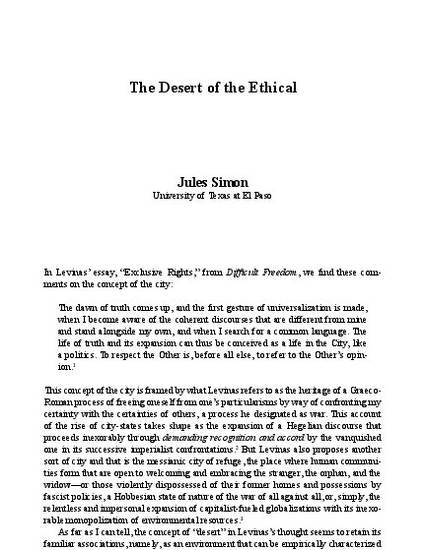
Article
The Desert of the Ethical
Southwest Philosophical Studies
(2013)
Abstract
As far as I can tell, the concept of “desert” in Levinas’s thought seems to retain its
familiar associations, namely, as an environment that can be empirically characterized
as inhospitable, barren, and destitute of the kinds of material resources necessary for
the growth of the autonomous and autochthonous subjective self. It also seems plausible
that a relevant extension of desert conditions to human community in Levinas’s
topography would be the “cities” of concentration camps of the Holocaust. In other
words, there is a correlative interior type of desert that, with Levinas, can be intuited
as what I am calling a desert of the ethical . In what follows I would like to refer to
both of these conditions—the ontological and the ethical deserts—as a way to better
understand why humans in general move from such desert regions to areas that promise
what seems like greater fecundity and the possibilities of growth and expansion of
family and tribe. I would like to modify each of these depictions in consonance with
what I take to be a Levinasian ethical horizon for my reflections.
Keywords
- Levians,
- ethics,
- border philosophy,
- political philosophy,
- environmental ethics
Disciplines
Publication Date
2013
Citation Information
jules simon. "The Desert of the Ethical" Southwest Philosophical Studies (2013) Available at: http://works.bepress.com/julesimon/15/
